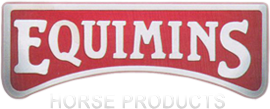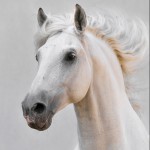Five facts about the horse’s gut (and how we can use this information to help keep our horses healthy)
We all want our horses to be fit, healthy and happy, and although there are many factors that influence this, what we feed (and how we feed it) can really contribute towards it. In this blog, we take five facts about the horse’s digestive system and explain how this information can help us to feed our horses in a way that’s better for them…
- It takes the horse 3500-4500 chews to consume 1kg of hay…and around 850 chews to consume the same amount of hard feed. When the horse chews, he produces saliva, which helps to neutralise stomach acid. Less chews = less saliva.
- The horse’s stomach is about the size of a rugby ball…which is pretty small when you think about the size of the horse and the size of a bucket of feed. This is why ‘feed little and often’ is a rule of feeding. Overloading the stomach is far from ideal…and leaving the horse with an empty stomach between big feeds allows stomach acid to build up.
- The small intestine is where digestion and absorption really begins…but in order to do this effectively, the acidity of the food entering the small intestine should be neutralised, to allow the good bacteria to do their work.
- The large intestine extracts the goodness from the forage based diet. Bacteria in the large intestine ferment the forage which not only releases vitamins and more for the body to use, it also produces heat which keeps the horse warmer in the winter. Diets that are high in grain can change the pH of the hind gut, which can lead to a decrease in good bacteria and an increase in harmful bacteria…and this can have a range of consequences.
- The bacteria in the gut need time to adjust to a new feed…that’s why feed needs to be changed slowly and gradually. If a horse’s feed is changed too quickly, it can be hard for the horse to digest it properly and this can lead to problems such as colic.
To find out more about the horse’s digestive systems, check out our ‘Bedtime Reading’ feature here.

 Equimins specialises in producing natural horse supplies, products and supplements for the major areas associated with caring for a horse. All products are proudly made in the UK and excellent specification quality products are of paramount importance. Using this blog we want to share some of the knowledge we have gained through nearly 30 years of experience.
Equimins specialises in producing natural horse supplies, products and supplements for the major areas associated with caring for a horse. All products are proudly made in the UK and excellent specification quality products are of paramount importance. Using this blog we want to share some of the knowledge we have gained through nearly 30 years of experience. 


